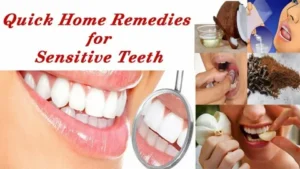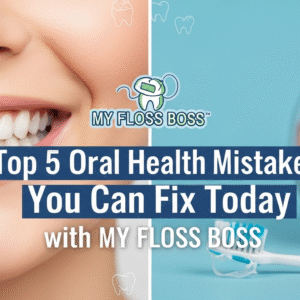Tooth sensitivity is one of the most common dental problems, affecting millions of people worldwide. In fact, studies suggest that nearly 1 in 8 adults experience tooth sensitivity, with a higher prevalence among individuals aged between 20 and 50 years .Tooth sensitivity can make daily activities—like brushing your teeth, eating certain foods, or even breathing in cold air—uncomfortable. The good news is that proper dental care and the right oral hygiene habits can significantly reduce tooth sensitivity and prevent it from worsening.
In this article, we’ll explore practical, dentist-recommended tips for managing sensitive teeth, backed by science and real-world experience. Whether you live in the USA or the UK, these tips will help you understand what causes tooth sensitivity, how to protect your teeth, and which dental care strategies are proven to work.
Understanding Sensitive Teeth
Before diving into the best dental care tips, it’s important to understand why teeth become sensitive in the first place.
Tooth sensitivity occurs when the protective layers of your teeth (enamel or cementum) wear down, exposing the underlying dentin. Dentin contains tiny tubules that lead directly to the tooth’s nerve center (the pulp). When these tubules are exposed to hot, cold, sweet, or acidic foods, they trigger pain signals, resulting in discomfort.
Common Causes of Tooth Sensitivity:
- Brushing Too Hard – Aggressive brushing can wear down enamel.
- Gum Recession – Often caused by gum disease, this exposes the root surface of teeth.
- Acidic Foods and Drinks – Soda, citrus, and wine can erode enamel over time.
- Teeth Grinding (Bruxism) – Habitual grinding wears away enamel.
- Tooth Decay or Damage – Cavities or chipped teeth can expose sensitive areas.
- Whitening Products – Overuse of whitening strips or pastes can irritate dentin.
“The key to managing tooth sensitivity is not just reducing pain , but addressing the underlying causes with proper dental care.”
Dental Care Tips for Sensitive Teeth
Here are some proven dental care strategies that dentists recommend for managing sensitive teeth effectively:
1. Switch to a Desensitizing Toothpaste
A desensitizing toothpaste works by blocking pain signals from reaching the tooth’s nerve. Brands like Sensodyne, Colgate Sensitive Pro-Relief, and Crest Gum & Sensitivity are formulated with compounds like potassium nitrate that calm nerve endings over time.
How to Use:
- Brush twice daily with a pea-sized amount.
- For quicker results, rub a small amount directly on sensitive teeth before bed.
2. Use a Soft-Bristled Toothbrush
Using a hard-bristled toothbrush can damage enamel and gums, making sensitivity worse. A soft-bristled brush gently cleans without scraping away protective layers.
Tip: Opt for an electric toothbrush with a pressure sensor for added protection.
3. Brush Properly – Not Aggressively
Did you know that most people brush incorrectly? Dentists recommend the 45-degree angle technique, where the brush is tilted toward the gum line, and gentle circular motions are used.
4. Rinse with a Fluoride Mouthwash
Fluoride helps remineralizer enamel, creating a natural shield against sensitivity. Using a fluoride rinse once or twice a day can significantly reduce discomfort.
5. Limit Acidic and Sugary Foods
Acidic foods (like citrus, tomatoes, and soda) erode enamel, while sugary foods feed harmful bacteria that cause cavities.
Better Options: Swap sodas for water or milk , and rinse your mouth with water after consuming acidic foods.
6. Avoid Overuse of Whitening Products
While whitening treatments brighten your smile, they often cause temporary sensitivity. If your teeth are already sensitive, consult your dentist for alternative whitening solutions.
7. Treat Gum Recession
Gum recession is a common cause of sensitivity. Ask your dentist about treatments like gum grafting or fluoride varnishes to protect exposed roots.
8. Wear a Night Guard if You Grind Your Teeth
Bruxism (teeth grinding) is a major cause of enamel wear. A custom night guard, provided by your dentist, can protect your teeth while you sleep.
9. Drink Water Frequently
Saliva is your mouth’s natural defense against acid attacks. Staying hydrated helps maintain healthy saliva levels and protects enamel.
10. See Your Dentist Regularly
Routine check-ups allow your dentist to spot early signs of enamel erosion, gum recession, or cavities, which may be causing sensitivity.
Natural Home Remedies for Sensitive Teeth

In addition to professional treatments, there are natural remedies that can complement your dental care routine:
- Coconut Oil Pulling – Reduces harmful bacteria and strengthens gums.
- Saltwater Rinse – A natural disinfectant that soothes inflammation.
- Green Tea Rinse – Rich in antioxidants that strengthen enamel.
- Clove Oil – Contains eugenol, a natural pain reliever.
Professional Treatments for Severe Sensitivity
When home remedies and daily care aren’t enough, your dentist may recommend:
- Fluoride Gel or Varnish Applications
- Bonding or Sealants to cover exposed dentin
- Root Canal Treatment in severe cases
Statistics on Sensitive Teeth
- Around 10-30% of adults worldwide suffer from dentin hypersensitivity.
- More women than men report tooth sensitivity, possibly due to hormonal changes.
- Nearly 80% of people who use whitening products experience some form of sensitivity. [Source]
Block Quote for Impact
“Good dental care is not about expensive treatments; it’s about consistent, gentle habits that protect your teeth for life.”
FAQs on Sensitive Teeth
1. Can sensitive teeth go away on their own?
Sometimes sensitivity caused by minor enamel wear can improve with proper care, but chronic sensitivity often requires professional treatment.
2. What foods should I avoid with sensitive teeth?
Limit acidic foods like citrus fruits, soda, and tomato-based sauces.
3. Is tooth sensitivity a sign of a cavity?
It can be. Cavities expose dentin, which increases sensitivity. A dental check-up is the best way to confirm.
4. Are electric toothbrushes safe for sensitive teeth?
Yes, if they have soft bristles and a pressure sensor.
5. How often should I visit a dentist for sensitive teeth?
At least twice a year, or sooner if symptoms worsen.







